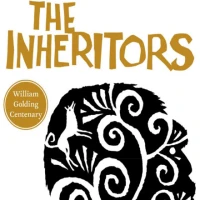Slaves of Solitude, by Patrick Hamilton
Literary fame is an odd thing. Apparently in his day Patrick Hamilton was a major writer. An Amis or McEwan. Critics and readers both eagerly anticipated his next novel.
Then he was forgotten. Swiftly and comprehensively. He became unfashionable. He became out of date.
In recent years of course he’s had a revival. I wouldn’t quite call him well known, but there’s been an excellent BBC adaptation of his 20,000 Streets Under the Sky (seriously, it’s very good) and his books are back in print. He’s being read again, and referenced as the important London writer that he was.
Slaves of Solitude is the second Hamilton I’ve read. Previously I’d enjoyed the marvellous Hangover Square; a novel with one of the most memorable femme fatales in fiction (the marvellously hateful Netta) and a convincing portrait of the attractions of fascism to small minded people.
Hangover Square was written in 1941. Slaves of Solitude, Hamilton’s next novel (though he had written several before Hangover) was written in 1947. Unlike Hangover Square, however, Slaves of Solitude is actually set during the Second World War.
Hamilton was a master of depicting an England that thankfully is now mostly extinct. It was an England of seedy boarding houses, of genteel want and petty proprieties. It was an England in which one of the few escapes was the local pub, but even that was all too often filled with bar-room bores and drink in any event made a dangerous escape route from tedium.

In Slaves of Solitude Hamilton shows all of that and shows too as a writer exactly what he’s capable of. Miss Roach, a former teacher now working in publishing, lives in the Rosamund Tea Rooms in the London suburb of Thames Lockdon. Like many, she has fled the dangers of the blitz. She commutes into London each day, and each night is disgorged from Thames Lockdon station to find her way by torchlight (the blackout’s in full force) back to her lodgings.
The novel opens with a wonderful image of London as a crouching beast, breathing in commuters in the morning and exhaling them in the evening. It’s a sort of hell, with Thames Lockdon perhaps a sort of heaven by comparison.
Seen closer it’s clear it’s no heaven. The Rosamund Tea Rooms are run by a Mrs. Payne who has converted an unsuccessful teahouse into a somewhat dismal boarding house. The residents are mostly middle aged and elderly, telephone calls must be taken from Mrs. Payne’s room (which she sees no reason to vacate at such times), meals are had together at set hours and existence is ordered.
Mrs. Payne had put a stop to electricity on the landings simply by taking all the bulbs out – thus succouring her hard-pressed country, the spirit of the black-out generally, and her own pecuniary resources.
Mrs. Roach is a ‘hopeless’ woman. Hopeless in that she is now in early middle age (by the standards of her day), unmarried and with no prospect of marriage. Life in The Rosamund Tea Rooms is for her a perfect hell. Hell because the small community is dominated by a bully and a bore by the name of Mr. Thwaites. Nobody writes bores as well as Hamilton.
Thwaites dominates all conversations. Meal times are a mix of heavy silence and Mr. Thwaites holding forth. To make things worse, he has taken a dislike to Miss Roach and baits her at every opportunity with sly references and insinuations which upset without giving anything concrete to respond to.
So ghastly is Mr. Thwaites that at meal times Miss Roach does not just wait in fear of his attacks on her, she waits in fear too of everything he says because the sheer pomposity of it makes her skin crawl.
Oh God, thought Miss Roach, now he was beginning his ghastly I-with-the-third-person business. As if bracing herself for a blow (as she looked at the tablecloth), she waited for more, and more came.
‘I Keeps my Counsel,’ said Mr. Thwaites, in his slow treacly voice, ‘Like the Wise Old Owl, I Sits and Keeps my Counsel.’
Miss Roach, shuddering under the agonisingly Thwaitesian remark – Thwaitesian in the highest and richest tradition – knew well enough that there was more to follow. For it was a further defect of Mr. Thwaites that when he had made a remark which he thought good, which he himself subtly realised as being Thwaitesian, he was unable to resist repeating it, either in an inverted or a slightly altered form. He did not fail to do so on this occasion.
‘Yes,’ he said, ‘I Keeps my Counsel, like the Wise Old Bird … I Happens to keep my Counsel … I Happens to be like the Wise Old Bird …’
He gets worse from there, more excrutiating.
Things pick up when an American lieutenant, briefly dining at the Rosamund, takes an interest in Miss Roach. Like the Americans in Britain generally, he comes flush with confidence and money to a tired place filled with the hopeless and people desperate for something to give them hope. He doesn’t know anything of the customs of the Tea Rooms, and he wouldn’t care if he did. Just by being there, he changes everything.
The development of these relationships (among others, other characters grow in importance as the novel develops) is what drives the plot. The battles, mostly one sided, between Mr. Thwaites and Miss Roach are wonderfully realised. Her romance with the American too. His dream is to return home and to make it big in the laundry business. But is that a world the rather literary Miss Roach could make a home in?
The American is a chance of escape, perhaps to America but even if not at least a chance of escape to the local pub which women are increasingly becoming comfortable entering. The pub here is transformative, a place apart from the dreary constancy of wartime privation. A bubble of light and cheer in an England blacked out for fear of bombs.
This is, I understand, the only wartime novel Hamilton wrote. The war here is in one sense far away. There are no bombs in this novel, no battles. In another sense though it’s ever present. The characters are only in Thames Lockdon because of the war. Mr. Thwaites only has Miss Roach in his power because of it. The war here is not exciting or even particularly frightening, rather it is a constant drain that affects every part of life. The war:
…was slowly, cleverly, month by month, week by week, day by day, emptying the shelves of the shops – sneaking cigarettes from the tobacconists, sweets from the confectioners, papers, pens, and envelopes from the stationers, fittings from the hardware stores, wool from the drapers, glycerine from the chemists, spirits and beers from the public-houses, and so on endlessly – while at the same time gradually removing crockery from the refreshment bars, railings from familiar places, means of transport from the streets, accommodation from the hotels, and sitting or even standing room from the trains.
It’s not wholly flawless. There are times, thankfully rare, when Hamilton’s sentences overreach themselves (I’ve no problem with a character “in whom street corners actually stimulated loquacity” but it’s a hard line to read). When it happens it’s a little jarring but it didn’t happen often. I mention it really only for completeness.
In the end, Slaves of Solitude is a genuinely excellent novel. It’s characters are memorable; it’s depiction of wartime England is vivid (if I can use that word for something so grey) and the almost surreal heights of the awfulness of the Rosamund Tea Rooms somehow make it all the more credible. There is a sense that perhaps the Tea Rooms are not hell after all – they are not even that dramatic. Rather they are purgatory. They are an interminable waiting room into which Miss Roach has fallen.
John Self of The Asylum has also written up Slaves of Solitude, here. He also has a review of 20,000 Streets Under the Sky over at his. Both are worth reading.
Slaves of Solitude. Mine is the Constable and Robinson edition, which is excellent and which has equally excellent forewords by Doris Lessing and Michael Holroyd. There’s also an NYRB edition, which I haven’t seen personally but which can be purchased here.












